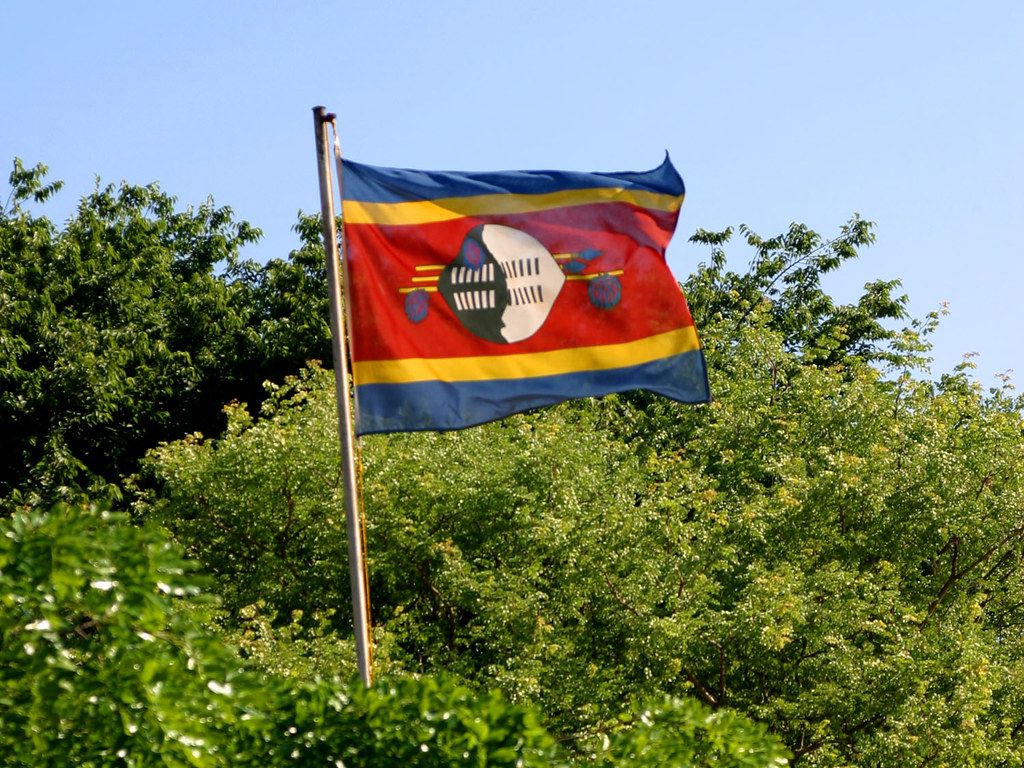
The Freedom Struggle in Eswatini
In 1973 the monarchy of Swaziland, now Eswatini, dissolved the country’s democratic constitution, banning all political parties. Since then, it has theoretically maintained representative institutions, but in practice these can - and are - overruled at any time by the absolute and arbitrary authority of the king.
A new report, Holding Eswatini to Account: Assessing the country’s compliance with the Commonwealth Charter, documents the human rights abuses of the Eswatini government and demonstrates how it has failed in its duties as laid out by the principles and values of the Commonwealth Charter. The report includes first-hand testimonies from trade unionists and civil society leaders and is structured around 10 of the 16 principles of the Commonwealth Charter that Eswatini has demonstrably violated.
Freedom of Speech, Assembly and Association Denied
The monarchy maintains an iron grip on both civil society and institutional politics. Eswatini’s trade unions have found themselves restricted in the performance of even their basic economic functions, as well as having their vital role as democratic institutions and upholders of social rights forcefully curtailed. As the pressure for democratic reform has increased, trade union demonstrations have been targeted by heavy police repression.
The police decided to disperse the protesters, using rubber bullets, tear gas and water cannons, despite this being a legally protected industrial action. They also assaulted people indiscriminately.
- Mduduzi Gina, Secretary General of TUCOSWA, after a demonstration in September 2018
For independent unions, even employer recognition can be an impossible legal hurdle. Employers can hold union recognition battles up in court for years at a time, whittling down trade unions’ organisational presence by a process of attrition.
Political parties are completely illegal, and individuals who attempt to openly exercise their basic right of freedom of association are severely treated. Nonetheless, underground political parties exist and form part of the main coalition of opposition to the absolutist system.
Freedom of association, already scarcely in evidence due to the ban on political parties, has been further eroded in recent months in response to the ongoing crisis, and freedom of expression – including press freedom - exists in name only.
Human Rights Violated
However, it’s not just political rights that are neglected and abused in Eswatini. The state has also abdicated its duty to secure social and economic rights for its people, as well as falling well short on its commitments to principle nine of the Commonwealth Charter on sustainable development. The health service is almost non-existent for ordinary Swazis, while the royal and political elite receive the best private medical care across the border in South Africa.
On gender equality too, the regime in Eswatini is failing. Despite signing up unambiguously to Commonwealth standards on gender equality, women’s participation in economic and political life, as well as in educational attainment, falls short on every metric. On the question of equality for the LGBT community, the Eswatini government explicitly denies that its commitment to anti-discrimination and equality cover sexual orientation, which it claims is covered instead by the country’s anti-sodomy laws.
In June 2021, a decision to ban the petitioning of the government resulted in the intensification of the campaign for democratic and constitutional reform, which has been met with repression and deadly violence.
Working with Eswatini’s Trade Unions for Reform
Our report shows that Eswatini has clearly failed to comply with the values and principles set out in the Commonwealth Charter, but the Commonwealth Ministerial Action Group (CMAG), which is the custodian of these values, has been reluctant to hold Eswatini to account. The UK government is a member of CMAG.
Amplifying the calls of our sister centre in Eswatini, TUCOSWA, the report makes several important demands on the government of Eswatini. These include but are not limited to:
-
the repeal of the 1973 Decree and amend the constitution to allow political parties to contest national elections.
-
guarantees of respect the right to freedom of association and the right to organise, simplifying union recognition across all sectors of the economy.
-
ending police brutality against workers participating in peaceful and legal protest actions.
As part of coordinated international action with sister centres, the TUC is calling on the UK government to use its position to initiate an investigation into eSwatini’s breaches of the Commonwealth Charter, and support implementing the recommendations set out in the report to promote human and trade union rights. Unless these reforms are implemented swiftly, eSwatini’s commonwealth membership must be suspended.
Stay Updated
Want to hear about our latest news and blogs?
Sign up now to get it straight to your inbox
